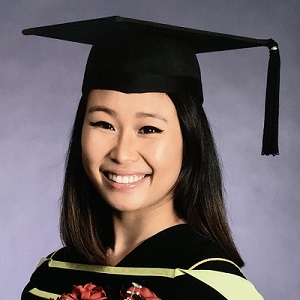Meet the LFS Class of 2020
June 17, 2020
Meet the LFS Class of 2020!
Congratulations to all of our students in the Class of 2020! Here are just a few of our outstanding students who are poised to make their mark in the world.
Njoki Mburu, Global Resources Systems
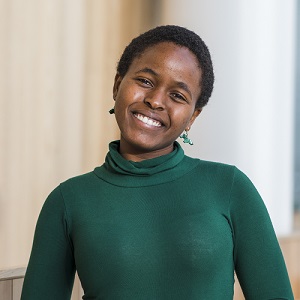
As an international student from Nakuru, Kenya, Njoki received the MasterCard Foundation Scholarship to study in Canada. She choose UBC because of its commitment to sustainability and the environment.
After her first year of studies, she transitioned into the Global Resource Systems (GRS) when a student in the program and club mate recommended it to her. “I was immediately excited about it, as it allowed me to incorporate more social science into my science degree.”
From her time spent in Vancouver and UBC, Njoki was moved when learning about the inequalities that exist among the Indigenous populations, especially as a visitor living in comfort. She was inspired to shift her focus in her program to work against these systems of oppression.
“A valuable lesson that Dr. Les Lavkulich shared with me, is that nothing good comes out of guilt. If I want to create meaningful change, I need to do it from a place of love.” Njoki plans to pursue a Masters degree in the future, looking into the equalities in the systems of environmental policy and development.
Tip for first year students:
While it becomes easy to focus on your coursework because they give you credits, make time for extra-curricular opportunities! They have their own unique benefits and help broaden your perspective.
Misa Gillis, Global Resource Systems
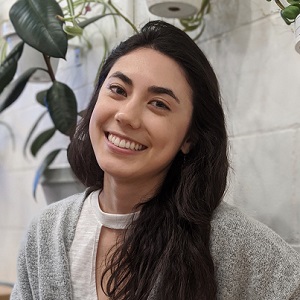
Misa created an educational experience in GRS that satisfied her curiosity about health, going well beyond the core sciences.
It’s paid off as Misa has been accepted into UBC’s medical school next semester. In the future, she would love to work in global health, and says her GRS experience has given her the ideal perspective to succeed.
A UBC Wesbrook Scholar, Misa discovered land and food systems (LFS) after spending two years in UBC sciences. She made the switch to LFS’s GRS program because of its cross-disciplinary nature – she wanted to gain an understanding of the social and community aspects of health: “We didn’t just learn in the classroom. There were so many opportunities to attend conferences, international events and exchanges.” A highlight for Misa was travelling to Tokyo to present at the International Student Summit on Food, Agriculture, and the Environment on food literacy in the classroom. This built upon a past internship she had with Think&EatGreen@School, a collaboration between the Vancouver School Board, City of Vancouver and LFS, that aims to increase understanding of food among youth and teachers.
Tip for first year students:
Seek out opportunities beyond the classroom and treat every experience as a learning experience! Now is the time to explore what interests you.
Taryn Scarff, Applied Biology
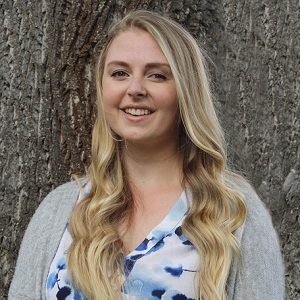
No matter where she goes – from Nelson, B.C. to Vancouver – a common thread for Taryn is working with animals. Post-graduation, Taryn will be pursuing a UBC master’s degree in Zoology with plans to study the transient killer whale population along B.C.’s coastline. Starting this summer, she will be on a boat tracking the northern and southern resident killer whales.
Taryn grew up in Nelson and was involved with their local BC SPCA for seven years. She began as a volunteer in high school, then ran summer camps and eventually became an animal care attendant. Taryn first studied business in college, but soon realized she wanted to return to animals. She joined LFS’s Applied Biology program, majoring in Applied Animal Biology. One of Taryn’s most valuable takeaways was gaining research skills in APBI 398 (Research Methods in Applied Biology). It was through this course that she joined UBC’s Marine Mammal Research Unit led by Andrew Trites, and where she will continue on for her master’s degree.
Tip for first year students:
My biggest tip is to get involved in any clubs that you’re interested in. I was president of the UBC Pre-Veterinary and Animal Welfare Club for two years and it was a great way to get involved and meet other students with similar interests. Also, if you think you are interested in research, find a researcher and volunteer to help in their lab, as the introductions you make are extremely valuable when you graduate.
Hannah Spitzer, Applied Biology
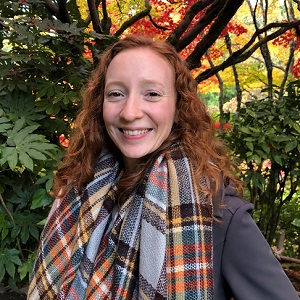
Hannah Spitzer’s introduction to livestock came about when she was doing fieldwork at the UBC Dairy Education and Research Centre. Prior to that, she had no experience with cows! When Spitzer started at UBC LFS, she was certain she wanted to become a vet. But her experience doing research – collecting and analyzing data – and interacting with large animals, such as dairy cattle, in a non-medical way was enjoyable.
Post-graduation Spitzer plans to move to the East Coast to start a master’s degree at the University of Prince Edward Island (UPEI). However, she will keep her options open and may pursue vet school at some point in the future. She’s happy that Professor Marina von Keyserlingk made the initial introduction to her future academic supervisor, Kathryn Proudfoot, Associate Professor, and Director of the Sir James Dunn Animal Welfare Centre, Atlantic Veterinary College at UPEI. Proudfoot is also an alumnae of UBC’s Animal Welfare Program.
Tips for first year students:
- Make sure you take advantage of opportunities to meet students above you, professors and TAs. Keep an open mind.
- In your personal life, it’s OK to take breaks and take some time for yourself. Take care of your health and well-being and don’t feel like you need to be working all of the time.
Nilanga Aki Ediriweera Bandara, Food, Nutrition and Health
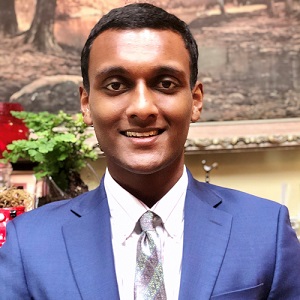
Nilanga (Aki) Ediriweera Bandara chose the FNH program because he was interested in how our health and overall wellbeing are impacted by what we eat. He was curious about filling in the gaps between the food on our plates and a healthy body. Aki’s mom owned a Sri Lankan restaurant, so he was often surrounded by wholesome, homemade food, and he wanted to understand the nutritional impact of the food they served. Post-graduation he will be pursuing graduate school.
Aki is a UBC Wesbrook Scholar who has been involved in undergraduate research projects, and many community organizations. One of his long-term volunteer positions is with the Fraser Health Crisis Line where he provides mental health support to citizens across B.C. He is grateful for the support he has received from LFS throughout his degree: one highlight was presenting at the Canadian Public Health Association’s Tobacco Control Forum, where he received invaluable support from then Associate Dean of Academic Christine Scaman and Dean Rickey Yada.
Tip for first year students:
At this time of COVID-19, it will be challenging for first year students to have a person-to-person connection during online learning. Don’t be afraid to ask for help when you need it! Approach your TAs and your professors who are there to help you. Also if you’re feeling stuck, ask for guidance sooner than later, as coursework can compound on itself.
Francesca Tse, Food, Nutrition and Health
Francesca’s discovery of LFS was a happy accident, as she thought she was applying to the Faculty of Science originally. At first unsure of what she wanted to study, she was introduced to the FNH program by her high school guidance counsellor, as it combined her strong interest in science and her love of food.
“I learned quickly upon arriving at UBC that I was in the right place at LFS, and I became immersed in the community very quickly. Students here are fortunate to have some of the most welcoming, supporting and encouraging faculty and staff.” Francesca believes in taking the many opportunities for getting involved and giving back as a complement to your education.
Tip for first year students:
Say yes and seize all opportunities that arise, especially if it makes you uncomfortable. The most growth happens when you put yourself in a spot that makes you uncomfortable. It is okay to make mistakes and fail because there is no better time to learn.
Jodie Zhao, Food, Nutrition and Health
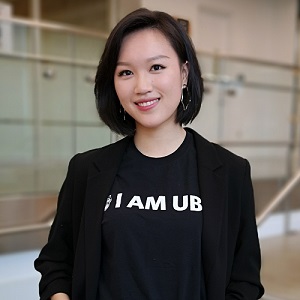
Jodie was fortunate to experience the UBC campus for the first time in an all-expenses paid trip as part of Destination UBC, and didn’t hesitate to accept her offer of admission shortly after arriving. “I applied to UBC for its prominence, and stayed for the community and West Coast vibe!”
Following her passion for food, Jodie originally enrolled into the Food Science major, and later transitioned into the general Food, Nutrition and Health major. “This made space in my schedule to take more electives, so that I was able to broaden my realm of knowledge by complementing my science courses with art and social sciences.”
During her undergrad, Jodie also accepted a work learn position with the LFS Student Services office, where she had a very memorable experience in a professional workplace setting, and was able to share her passions with fellow and future students.
Tips for first year students:
- Seek as many different opportunities as you can to broaden your perspective and have unique experiences.
- Take advantage of the many resources around campus: everything from advisors to career fairs to clubs, you’ll never know who you might meet or what doors might open.
Tagged with: 2020, Alumni





